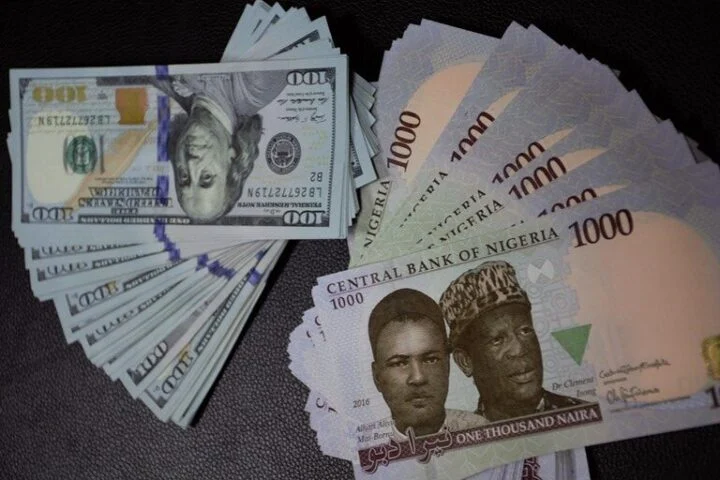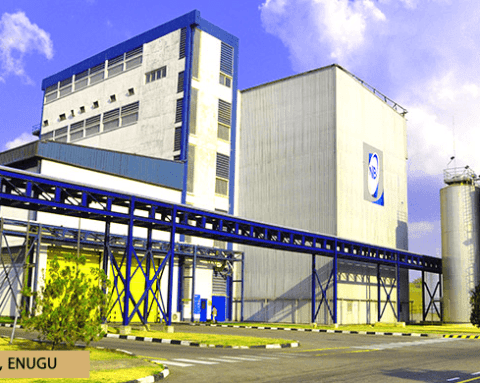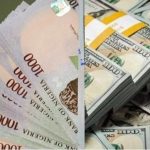Nigeria’s foreign exchange (FX) reserves are taking a sharp nosedive, with a decrease of approximately $2.16 billion over a span of 29 days, despite the Central Bank of Nigeria (CBN) striving to keep the naira stable.
The latest data from the CBN, as of April 15, 2024, shows the FX reserves dwindling to $32.29 billion, down from $34.45 billion recorded on March 18, 2024.
Join our WhatsApp Channel“This decline in reserves reflects the challenges we’re facing in managing our currency and meeting international obligations,” says an economist, highlighting the significance of the issue.
A closer look at the numbers reveals that this is the lowest level the reserves have reached since September 25, 2017, when they stood at $32.28 billion. This sharp decline marks the end of a period of steady growth. Just a few weeks ago, between February 5 and March 18, 2024, the reserves saw a healthy increase of $1.28 billion. At that time, the CBN attributed the rise to various factors including increased remittances and foreign investor interest in local assets.
READ ALSO: CBN Exchange Rate Intervention Spurs Importers’ Relief Amid Customs FX Rate Decline T0 N1,238/$1
However, the narrative has quickly shifted, with the reserves now on a consistent downward trajectory. From $33.57 billion at the beginning of April, they dwindled to $32.29 billion by April 15, showcasing a worrying trend.
“The recent drop in reserves could be attributed to intensified CBN interventions in the FX market,” suggests a financial analyst. “While these interventions are aimed at stabilizing the naira, they inevitably put pressure on the reserves.”
The CBN’s efforts to stabilize the currency include aggressive selling of dollars and clearing the foreign exchange backlog. In the past month alone, the CBN sold $10,000 worth of foreign exchange to each Bureau De Change operator (BDC) in Nigeria, among other measures.
But it’s not just CBN interventions that are causing the decline. Nigeria’s external debt servicing requirements and low oil production levels are also contributing factors. The country’s expenditure on external debt servicing skyrocketed to $560 million in January 2024, marking a significant increase from the previous year.
Additionally, Nigeria’s crude oil production fell from 1.32 million barrels per day in February to 1.23 million barrels per day in March, further straining the nation’s foreign exchange revenue.
“The decrease in reserves could have ripple effects on investor confidence and borrowing costs,” warns an economic analyst. “A lower credit rating could make it more expensive for Nigeria to borrow money internationally.”
The International Monetary Fund (IMF) projects a challenging period for Nigeria’s financial account, with reserves expected to plummet to $24 billion in 2024. However, there is hope for a recovery to $38 billion by 2028, as portfolio inflows are anticipated to increase.
Despite these projections, experts emphasize the need for immediate measures to address the declining reserves and ensure economic stability in Nigeria.
Emmanuel Ochayi is a journalist. He is a graduate of the University of Lagos, School of first choice and the nations pride. Emmanuel is keen on exploring writing angles in different areas, including Business, climate change, politics, Education, and others.
- Emmanuel Ochayihttps://www.primebusiness.africa/author/ochayi/
- Emmanuel Ochayihttps://www.primebusiness.africa/author/ochayi/
- Emmanuel Ochayihttps://www.primebusiness.africa/author/ochayi/
- Emmanuel Ochayihttps://www.primebusiness.africa/author/ochayi/















